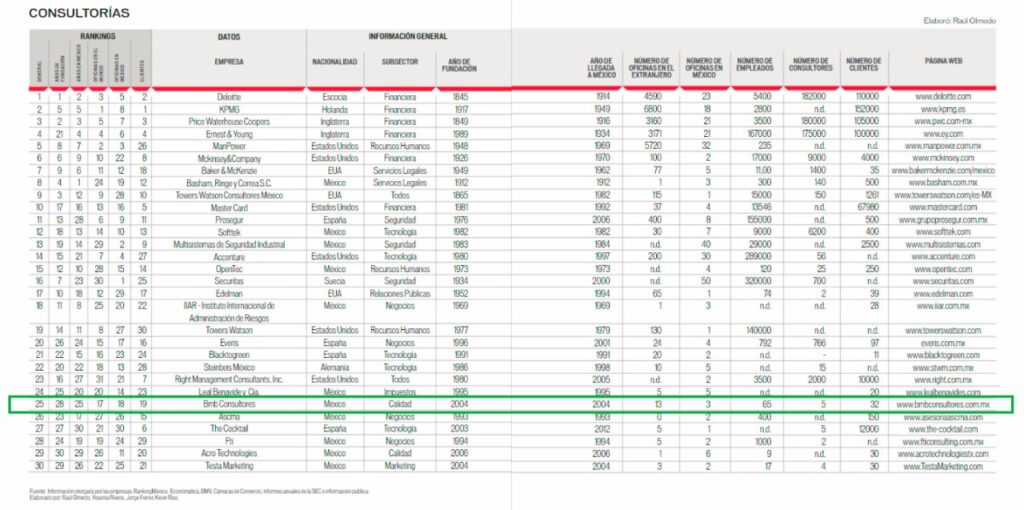The Importance of ISO 9000 Certification for Your Business
Are you the manager of a small or medium-sized business? Are you wondering how to boost growth and increase efficiency?
You may have set some tough targets in the past that you failed to hit. Have you considered examining your internal processes? How about working to meet an internationally-recognized quality standard?
You may have heard of ISO 9000 certification but think it’s just a piece of paper. The research company IDC found that inefficiency can cost you 20-30% of annual revenue. A good quality management system (QMS) can substantially lower this cost.
To reduce wasted resources and increase profits, you should consider ISO 9000 certification. What is the long-term cost associated with paying for poor quality?
We’re going to explain what a QMS is. We’ll also let you know why your organization needs to prove its high standards on the world stage. Read on!
Quality Management Systems
Quality management systems (QMS) are business processes. These processes aim to meet and exceed customer requirements and satisfaction. ISO 9000 certification sets an official external standard to meet this end goal.
For a business to stay competitive and profitable, refining a QMS is an on-going process. This is a never-ending series of improvements that involves everyone in the company. The enemy of a QMS is backward-thinking, such as “We’ve always done things this way.”
When a business strives to supply a quality product or service, it puts the customer first. The business should always want to better meet customer needs. This shift to a “customer first” management approach can lead to better overall service.
In addition to a customer focus, good quality management principles establish visionary leadership. Challenging goals should be set and organizational values established. Good leadership should inspire trust while empowering employees and recognizing their contributions.
Employees should engage in a process-oriented approach. They should seek to ever-improve and make evidence-based decisions.
Relationship management is a core principle within a QMS system. This is particularly important in regards to establishing and nurturing suppliers/partners.
What Is ISO 9000 Certification?
ISO 9000 are the internationally-set standards of quality management. They aren’t just for big businesses anymore.
These standards set forth specifications and definitions of what quality should look like. It’s up to businesses to put these standards into practice as they see fit. This flexibility allows ISO 9000 to be implemented in any organization, of any size, and from any sector.
More than a million companies/organizations are certified to ISO 9001 in over 170 countries. The overall goal is to help a company put a QMS in place, then improve and maintain it over time.
ISO 9001:2015 is the most recent version of the ISO 9000 standards, created in 2015. It’s the most globally recognized and implemented QMS standard.
ISO 9000 is concerned with the fundamentals of QMS. ISO 9001 consists of the requirements that organizations must fulfill to reach these standards. These standards have enormous implications for the management and operation of a company.
Processes are often improved after they have been closely examined. ISO 9000 certification requires full managerial involvement and dedicated time and effort. This will need to be balanced with day-to-day operations.
Though internal resources may be required to implement process changes, the overall goal is to add value. This is through a range of operational improvements that will save money.
Do I Need an ISO 9000 Certification?
Why would a smaller or medium-sized business want ISO 9000 certification? Some of its clients might eventually require it. Once a company has streamlined its own QMS with ISO standards, they are going to want to insist on the same quality from their suppliers too.
Meeting international quality standards is important for acquiring new business. This is especially true with bigger clients and for long-term multi-national growth.
While striving for ISO standards, employees and customers will recognize the increased value. The process of critical self-analysis within the organization will result in a clearer direction.
Some businesses may pursue ISO 9000 certification purely to improve their quality standards. Increased profits usually flow from efficient QMS.
The ability to display the ISO quality standards badge to customers and clients is an asset. This can be used to differentiate an organization from its competition. The problem-solving nature of focusing on the process frees up management resources over time.
Identifying the common goals that unite departments improves productivity and performance.
How to Get ISO 9000 Certification
The best first step towards certification is to produce an in-house quality standards manual. These aspirational standards of quality can serve to document processes and dictate training. They can also highlight inefficiencies in the current system that’s in place.
Once operational flaws are detected and addressed, significant savings may follow.
An ISO 9000 certification form is needed to compile and compute the data on organizational quality management systems. Reach out to an ISO standards consultancy that has experience in your industry. They can help train you to meet certification requirements.
The certification body will perform an audit on your organization to identify processes that do not conform to ISO standards. If your organization doesn’t have a quality manager familiar with ISO, an outside consultant is likely necessary. They will use their experience to help mentor you through the process.
Once the right people are on board with the project and are fully committed to ISO standards, the certification process can start. It’s difficult to gauge how long the process will take, but 9-12 months is common.
ISO 9000 Certification
We’ve shown the benefits of an internationally-recognized quality management system. It might be key for your future growth. Don’t let a certificate stand in the way of your ability to compete in the global supply chain.
If you’re a small or medium-sized business looking to get ISO 9000 certification, we can help you. We are an ISO standards consultancy firm with 20 years of experience. We offer certification and training with experts in Mexico, South America, Europe, and Asia.
Contact us today to start the process.





